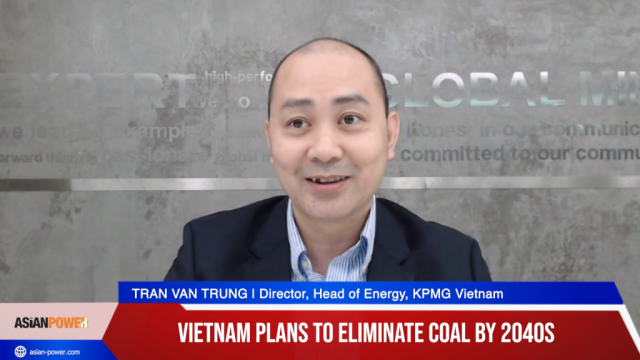Thought Leadership Centre
Most Read
1. Malaysia launches platform for RE cross-border sale to Singapore 2. ASEAN could save $800b in decarbonisation costs with regional cooperation 3. Australia launches largest renewable energy tender 4. Chinese IPPs’ debts to grow 9.3% for clean energy investments 5. REDC to develop 320 MW seawater pumped storage hydropower projectResource Center
Awards
Oct
22
Oct
22
Oct
22
Event News
Event News
Celebrate your exceptional energy and sustainability initiatives with Asian Power
Co-Written / Partner
The awards programmes are accepting nominations until 19 July 2024.
Co-Written / Partner
Celebrate your exceptional energy and sustainability initiatives with Asian Power
The awards programmes are accepting nominations until 19 July 2024.
Videos
Partner Sites
Join the community
Thought Leadership Centre
Most Read
1. Malaysia launches platform for RE cross-border sale to Singapore 2. ASEAN could save $800b in decarbonisation costs with regional cooperation 3. Australia launches largest renewable energy tender 4. Chinese IPPs’ debts to grow 9.3% for clean energy investments 5. REDC to develop 320 MW seawater pumped storage hydropower projectAwards
Oct
22
Oct
22
Oct
22

 Advertise
Advertise




















Commentary
Why it's high time to invest in Vietnam's power transmission, distribution network
Why it's high time to invest in Vietnam's power transmission, distribution network
Achieving market competitiveness in the solar industry
5 factors that make cities greener
Here is what's wrong with geothermal development in Indonesia
How the falling yen hurts energy storage value chain in the short term
What you don't know about solar PV projects in China (Part 2)
What carbon capture and storage technology can do
What you don't know about solar PV projects in China (Part 1)
What you must know about Japan's Smart Mansion Assessment System for apartment buildings
Asia amidst nuclear power development craze
How ASEAN countries deal with evolving energy landscape
How a strong regulatory push can jumpstart Indonesia's biomass sector
Power projects in Indonesia you should know about
How China is managing a critical crossroad
What the CSR Bill under Companies Act 2013 means
What you must know about the power of the 2020 Tokyo Olympics
What you don't know about the Ring of Fire